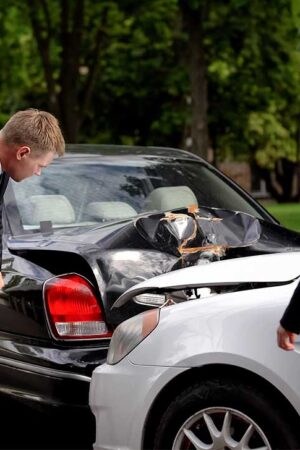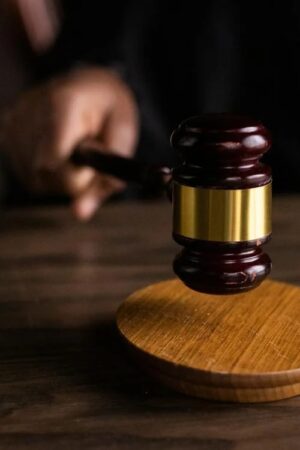In today’s fast-paced world, where uncertainty looms around every corner, the importance of being prepared cannot be overstated. Estate planning, often perceived as a complex and daunting task, is a fundamental step towards securing one’s legacy and ensuring the well-being of loved ones. This comprehensive guide aims to demystify the process, providing a clear and concise estate planning checklist to navigate the future confidently.
Understanding the Basics of Estate Planning
Estate planning is the process of arranging the management and disposal of a person’s estate during their life and after death. It involves legal structures and financial strategies to manage assets, debts, and end-of-life affairs. The goal is to ensure that your wishes are honored, your loved ones are taken care of, and your assets are protected and passed on efficiently.
The Ultimate Estate Planning Checklist
· Draft a Will
A will is the cornerstone of any estate plan. It outlines your wishes regarding distributing your assets and caring for any minor children. Without a will, your estate will be distributed according to state laws, which may not align with your preferences.
· Consider Living Trusts
Living trusts are a powerful tool in estate planning. They allow you to control your assets while alive and specify how they should be managed and distributed after your death. Trusts can help avoid probate, reduce estate taxes, and provide for seamless asset management in the event of incapacity.
· Appoint Powers of Attorney
Powers of attorney are essential in planning for potential incapacity. By appointing someone you trust to make decisions on your behalf, you ensure that your financial and healthcare wishes are respected even if you’re unable to communicate them yourself.
· Healthcare Directives
A healthcare directive, also known as a living will, specifies your wishes regarding medical treatment in situations where you cannot make decisions for yourself. It’s crucial to have this document in place to avoid any confusion or conflict among family members during critical times.
· Beneficiary Designations
Regularly review and update your beneficiary designations on retirement accounts, life insurance policies, and other assets. These designations often supersede instructions in wills and trusts, making it vital to keep them current.
· Plan for Asset Protection
Asset protection strategies involve structuring your estate to minimize exposure to potential creditors, lawsuits, or divorces. This might include the use of trusts, ownership structures, and insurance policies to safeguard your assets.
· Provide for Minor Children
If you have minor children, it’s imperative to name a guardian in your will. This ensures that someone you trust will care for your children if you cannot. Additionally, consider setting up trusts to manage any inheritance they may receive.
· Document Your Wishes for Digital Assets
In the digital age, including digital assets like social media accounts, online banking, and digital currencies in your estate plan is essential. Specify how these should be handled and who should have access to them.
· Organize Important Documents
Keep all your estate planning documents in a secure yet accessible location. Inform your executor or a trusted family member about where these documents are stored and how to access them when needed.
· Review and Update Your Plan Regularly
Life changes, such as marriage, divorce, the birth of a child, or significant financial changes, warrant a review of your estate plan. Ensure your plan reflects your current wishes and circumstances.
As you navigate the complexities of estate planning, engaging with professionals who specialize in this field is essential. Estate planning attorneys, financial advisors, and tax professionals can provide invaluable guidance tailored to your situation. They can help you understand the nuances of estate planning laws, which vary by state, and ensure that your plan is practical and compliant.
Engaging with Professionals
- Estate Planning Attorneys: These legal professionals specialize in estate planning and can help draft essential documents like wills, trusts, and powers of attorney. They can advise on asset protection and tax minimization strategies, ensuring that your estate plan aligns with your goals and legal requirements.
- Financial Advisors: Financial advisors can assist in creating a comprehensive financial plan that complements your estate plan. They can advise on retirement planning, investment strategies, and insurance needs, ensuring that your financial goals are met during your lifetime and beyond.
- Tax Professionals: Understanding the tax implications of your estate plan is crucial. Tax professionals can guide minimizing estate taxes and ensuring beneficiaries receive their inheritance with minimal tax burdens.
Keeping the Conversation Open
Discussing estate planning with your family can be challenging but crucial for ensuring your wishes are understood and respected. Open and honest conversations can prevent potential conflicts and ensure your loved ones are prepared for the future.
- Discuss Your Wishes: Share your estate planning decisions with crucial family members, especially those who will have roles in executing your plan, such as executors or trustees.
- Explain Your Decisions: Providing context for your choices can help alleviate any confusion or hurt feelings, ensuring your family understands your decisions’ rationale.
- Prepare for Change: Emphasize that estate planning is an ongoing process. Changes in family dynamics, financial situations, or personal wishes can lead to updates in your estate plan.
Estate Planning Myths Debunked
Many misconceptions surround estate planning, leading some to delay or avoid the process altogether. Here are a few common myths debunked:
- “Estate planning is only for the wealthy.” Regardless of the size of your estate, planning is essential to ensure your wishes are followed and your loved ones are protected.
- “A will is all I need.” While a will is a critical component, a comprehensive estate plan includes other elements like trusts, powers of attorney, and healthcare directives to protect your interests fully.
- “I’m too young for estate planning.” Estate planning is not just for older people. Unexpected life events can occur at any age, making it essential to have a plan in place.
Conclusion
Estate planning is a profound gesture of care for your family and a crucial step in securing your legacy. By following this ultimate estate planning checklist and engaging with the right professionals, you can confidently navigate the complexities of estate planning. Remember, estate planning is not just about distributing assets; it’s about ensuring that your wishes are honored, your loved ones are cared for, and your legacy endures. Start your estate planning journey today and take a significant step toward a secure and well-prepared future.






















